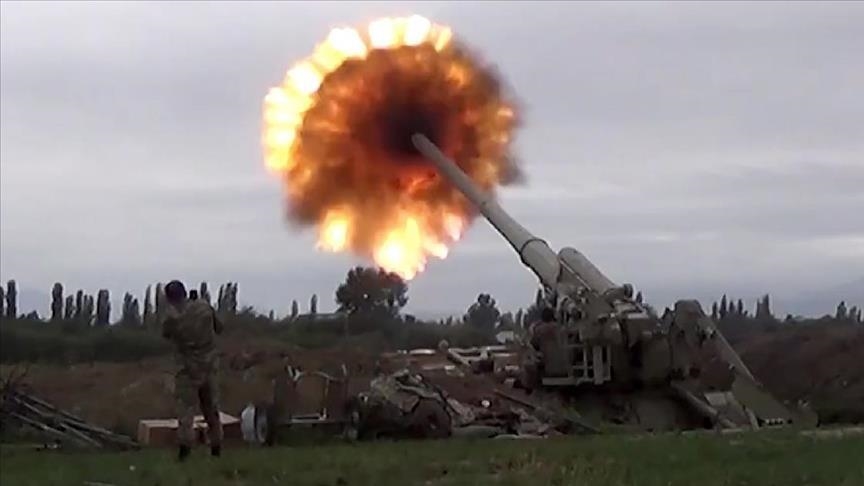Ceasefires to peace treaties: Why Azerbaijan-Armenia accord may mark a turning point
Experts say agreement inked in Washington this month could reshape the South Caucasus if commitments on paper translate into trust on the ground

- ‘The last agreement between the two sides was the ceasefire document signed to end the 2020 war … This agreement would go much farther, with the intention of preventing a future war,’ says International Crisis Group analyst Joshua Kucera
ISTANBUL
After three decades of failed ceasefires, Armenia and Azerbaijan have taken their most ambitious step yet toward ending their conflict.
Earlier this month, the two countries unveiled the text of a peace agreement they initialed in Washington during a trilateral summit with US President Donald Trump – a deal experts say could reshape the South Caucasus if commitments on paper translate into trust on the ground.
The 17-point accord commits both countries to recognize each other’s Soviet-era borders, renounce territorial claims, establish diplomatic ties, and create a bilateral commission to oversee implementation. It also pledges that neither side will deploy third-party forces along their border or pursue mutual claims in international courts.
The deal has already drawn praise from Türkiye, a close ally of Azerbaijan and a longtime supporter of normalization between Baku and Yerevan. Ankara has played an active role in confidence-building measures since the 2020 war, promoting dialogue and offering diplomatic support.
In June, President Recep Tayyip Erdogan hosted Armenian Prime Minister Nikol Pashinyan in Ankara, where he framed the process within a broader vision: “We are using all diplomatic means to establish stability not only in the Caucasus but in the entire region.” More recently, Erdogan welcomed progress during an August call with Azerbaijani President Ilham Aliyev, and following the Washington summit, he pledged continued backing.
Armenian Deputy Foreign Minister Vahan Kostanyan acknowledged in an interview with Anadolu earlier this month that Erdogan’s encouragement of a treaty had “positively” influenced normalization talks.
A different kind of agreement
Joshua Kucera, senior analyst for the South Caucasus at the International Crisis Group, emphasized that the deal differs markedly from past accords.
“The last agreement between the two sides was the ceasefire document signed to end the 2020 war. The ceasefire stipulated only the conditions to stop the fighting, this agreement would go much farther, with the intention of preventing a future war,” he told Anadolu.
A key difference lies in external involvement. “(Russian President Vladimir) Putin was the co-signer in 2020, now it’s Trump,” Kucera noted.
He highlighted that mutual recognition of borders – despite lingering questions over its implementation – “is a significant statement of intent and should help to build trust.”
Past lessons and Washington’s role
Previous peace efforts – such as the 1994 Bishkek Protocol and the 2020 Moscow-brokered ceasefire – collapsed because they froze the conflict rather than resolved it, according to analysts.
Renewed clashes in 2022 deepened mistrust before Azerbaijan’s 2023 offensive restored full control over Karabakh.
Kucera argued that Azerbaijan’s position now makes peace more attainable. “The main reason is that Azerbaijan, now the stronger side, has already accomplished its main strategic goal: regaining control of all its territory,” he explained.
Still, he added, risks remain: “The demand to change the Armenian Constitution could backfire … The new ‘Trump Route’ also has many unanswered questions around it, and it’s possible that negotiations on the details will break down.”
Kucera was referring to the proposed Zangezur corridor, a strategic link connecting Azerbaijan with its exclave of Nakhchivan, which has now been branded the Trump Route for International Peace and Prosperity (TRIPP).
On Washington’s involvement, Kucera described Trump’s role as pivotal but fragile. “Obviously Trump’s involvement was critical in getting Aliyev and Pashinyan to sign this agreement – to give Trump something that he can present as a peacemaking success,” he said.
“In the short term, obviously, it represents an increase in US influence, but for that to be maintained, the ‘Trump Route’ has to be a success and the US has to keep up the diplomatic activity, and neither of those is guaranteed.”
Whether the Washington-brokered agreement becomes a historic turning point or another broken promise, he underlined, will depend on implementation.
“As of now, the key issue is the Armenian Constitution … More broadly, the two sides need to trust each other more, and hopefully what happened (on Aug. 8) will help that.”
Anadolu Agency website contains only a portion of the news stories offered to subscribers in the AA News Broadcasting System (HAS), and in summarized form. Please contact us for subscription options.







